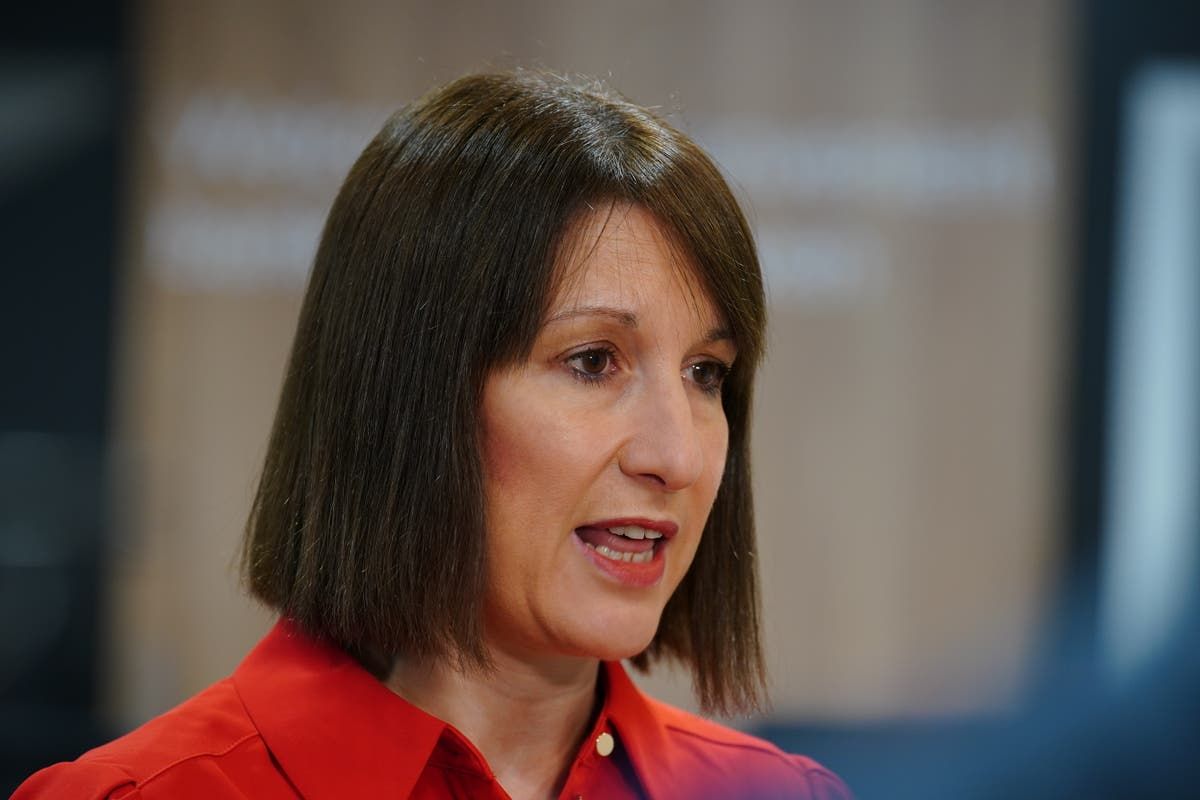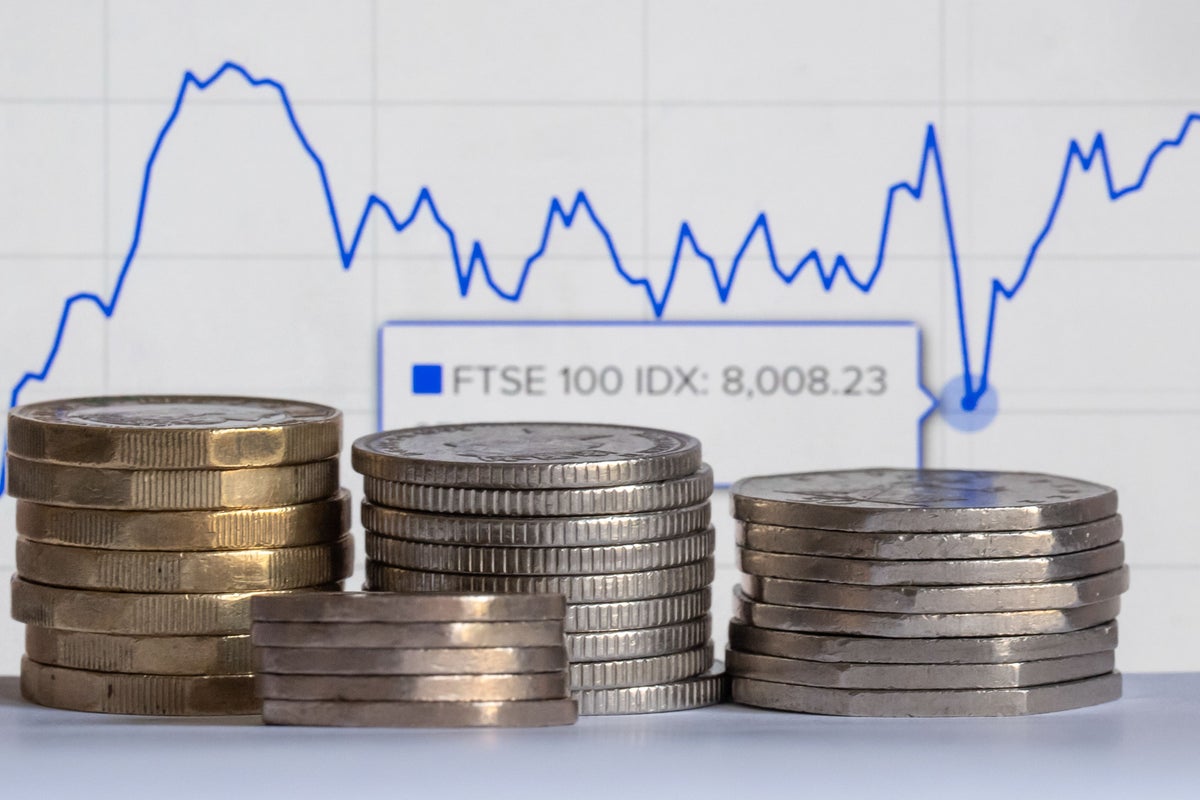Your support helps us tell the story.
From reproductive rights to climate change and big tech, The Independent is on the ground as the story unfolds. Whether investigating the finances of Elon Musk's pro-Trump PAC or producing our latest documentary, 'The A Word,' which sheds light on American women fighting for reproductive rights, we know how important it is to analyze the facts from the messaging .
At such a critical time in American history, we need journalists on the ground. Your donation allows us to continue sending journalists to talk about both sides of the story.
Americans across the political spectrum trust The Independent. And unlike many other quality news outlets, we choose not to exclude Americans from our reporting and analysis with paywalls. We believe quality journalism should be available to all and paid for by those who can afford it.
Your support makes all the difference.
The UK economy contracted again in October, putting economists under “recession watch”, in a blow to Chancellor Rachel Reeves' plan to improve productivity.
But behind the new figures lies a longer-term problem.
The Office for National Statistics (ONS) said output fell 0.1 per cent following the 0.1 per cent fall recorded in September, raising the specter of a quarter contraction if growth does not return.
This covers the month leading up to the government's first budget, where speculation over tax increases caused businesses to postpone their hiring and investment decisions.
Julian Jessop, economics fellow at the Institute of Economic Affairs, warned: “The second consecutive monthly fall in economic activity in October should put the UK firmly under recession watch.”
The UK's wobble has not occurred in isolation, he added: “In fact, the manufacturing sector appears to be struggling even more in the rest of Europe, especially in Germany and France.
Germany's economy will contract for the second year in a row and then grow slowly, according to its central bank.
The end of cheap natural gas from Russia and lower demand for its cars from China have been depressing its growth for some time.
Germany is Europe's largest economy and relies heavily on its huge manufacturing sector, which makes cars under the VW, Audi, Porsche, BMW and Mercedes brands, as well as aerospace parts and chemicals.
But Britain's situation is arguably worse due to a long period of lackluster economic growth. Germany's output per person is $55,500 according to the International Monetary Fund, while that of the United Kingdom is only $52,400.
Britain also has a problem with a weak manufacturing sector, an area of trade that provides valuable exports as well as employment and skills.
Jessop added: “The new government's negative rhetoric over the summer and the anticipation of a tight Budget have damaged confidence and encouraged many households and businesses to suspend spending, hiring and investment.”
Much of the impact on British production fell on industry and construction.
Monthly construction fell 0.4 per cent in volume in October after rising 0.1 per cent in September, according to the Office for National Statistics.
Perhaps most worrying is the decline in Britain's manufacturing of chemicals, machinery and pharmaceuticals, which fell by 0.2 percent or more.
These industries can have high profit margins and offer good jobs.
The chemical industry has been contracting for some time and companies and unions have asked the government for help to boost the industry.
Plant closures have been constant in recent years: Ineos closed a plant in Teeside in 2020 with the loss of 145 jobs; two years later it closed a fertilizer plant in Cheshire owned by CF Industries, with the loss of 283 jobs.
Last year, Japan's Mitsubishi closed its UK perspex plant in Teeside, which made chemicals for plastics, with the loss of more than 200 jobs.
And, more recently, the owner of Vauxhall has said it will close its Luton plant, threatening 1,100 jobs.
The wider industry has long warned that high energy costs are among the challenges to maintaining jobs in the UK.
The ONS said the services sector recorded no growth in October after also stagnating in September.
The latest economic news comes as the government continues to face criticism over the most controversial elements of the Budget, including changes to inheritance tax that will hit some farmers and winter fuel payments.
Conservative leader Kemi Badenoch said figures showing the economy shrank in October show Rachel Reeves' budget is “sinking the economy”.
During a visit to Essex, he told the PA news agency: “I think this shows that the Prime Minister and the Chancellor have been making the wrong decisions. They inherited an economy that was growing and is now contracting. Their budget is sinking the economy and they need to reverse this situation.
But Ms Reeves has insisted things will get better for the UK.
“The current GDP figures are disappointing, but it is not possible to reverse more than a decade of poor economic growth and stagnant living standards in just a few months,” Reeves said.
But for the industry to grow again, it will have to come up with a plan.










